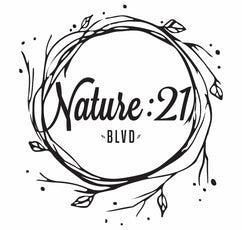
The Importance of Facial Masks in our Skincare Routine
Not long ago, facial masks were considered an occasional indulgence you’d likely receive at a salon. Nowadays, they’ve become an important step in our skincare routine to help protect and improve our skin. Masks can tackle key skin concerns depending on your complexion and age, ranging from dryness and dehydration, to large pores, dark spots, and acne.
Facial masks have evolved and now are one of the easiest ways to attain healthy, glowing, and supple skin. The best part is that treating yourself to masks only requires a minimal investment of your time, usually between 15 to 20 minutes. Just like a moisturizer or a serum,facial masks offer our skin highly concentrated active ingredients such as vitamins and nutrients by creating a physical barrier that locks in beneficial ingredients, allowing the skin to absorb moisture more efficiently. Facial masks also help clear unwanted oil and dirt to improve skin’s overall health and appearance.
Facial mask benefits
- Refines skin pores
- Enhances skin texture
- Reduces fine lines and wrinkles
- Hydrates and moisturizes dry, combination or oily skin
- Helps to diminish hyper-pigmentation
- Absorbs excess oil and dirt
- Helps lock-in active ingredients
- Decongests clogged pores
- Enhances skin’s elasticity
- Helps boost collagen production
- Improves skin breakouts
Tips to get the most out of your facial masks
- Apply a facial mask at least once a week, optimaly twice a week. Regularity depends on your skin type and the skincare concern you want to tackle. Oily skin requires a cleansing mask 2 to 3 times a week while dry skin requires a hydrating mask at least twice a week
- Apply onto cleansed skin.
- To clear impurities and excess oil, apply facial essence or serum before you put on the mask
- Achieve added hydration by using a facial mask following a shower, which naturally opens up your pores, this method works best with deep cleansing masks for oily and combination skin, such as those made of charcoal or clay
- Anti-aging masks may be used a few times per week
There are 6 different types of masks depending on their components and consistency:
Cream Masks: Recognized by their creamy texture, sort of like a rich moisturizer. They add back the well-deserved moisture and nutrients into your skin, helping to bring a glow and a young-looking appearance. Suitable for dry dehydrated skin.
Gel Masks: Have a lightweight texture with a consistency of jam or jelly. Some of them have astringent ingredients to reduce oil and tighten the development of large pores. Suitable for oily to normal skin.
Clay Masks: Come in different consistencies, but they’re characterize by their exfoliating and absorbent properties. Usually contain astringent ingredients that help treat acne and excess oil. Suitable for oily to normal skin.
Exfoliating Masks: Their main function is to remove dead skin cells from the skin’s surface and enhance its natural clearing process, bringing back a glowing complexion. Suitable for oily to normal skin.
Sheet Masks: Sheet masks work as occlusives, which means they create a physical barrier that prevents the evaporation of ingredients, saturating the skin with moisturizing, hydrating, and sometimes anti-aging nutrients. Suitable for dry to normal skin types.
Warming Masks: Because of their ingredients, they can cause a tingling sensation and temporarily redden skin due to the increasedblood flow, which invigorates the skin’s complexion. Suitable for normal skin types.
